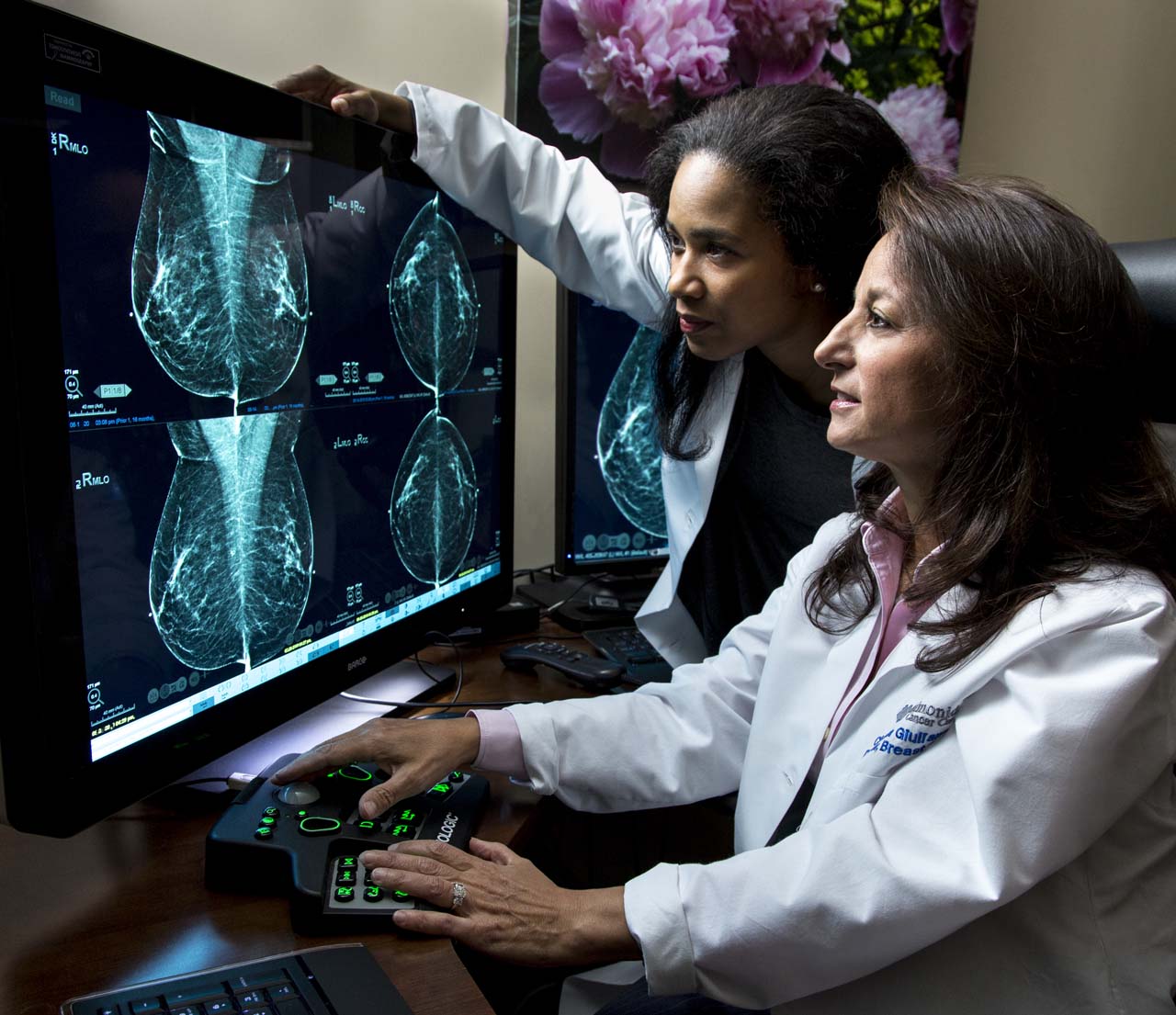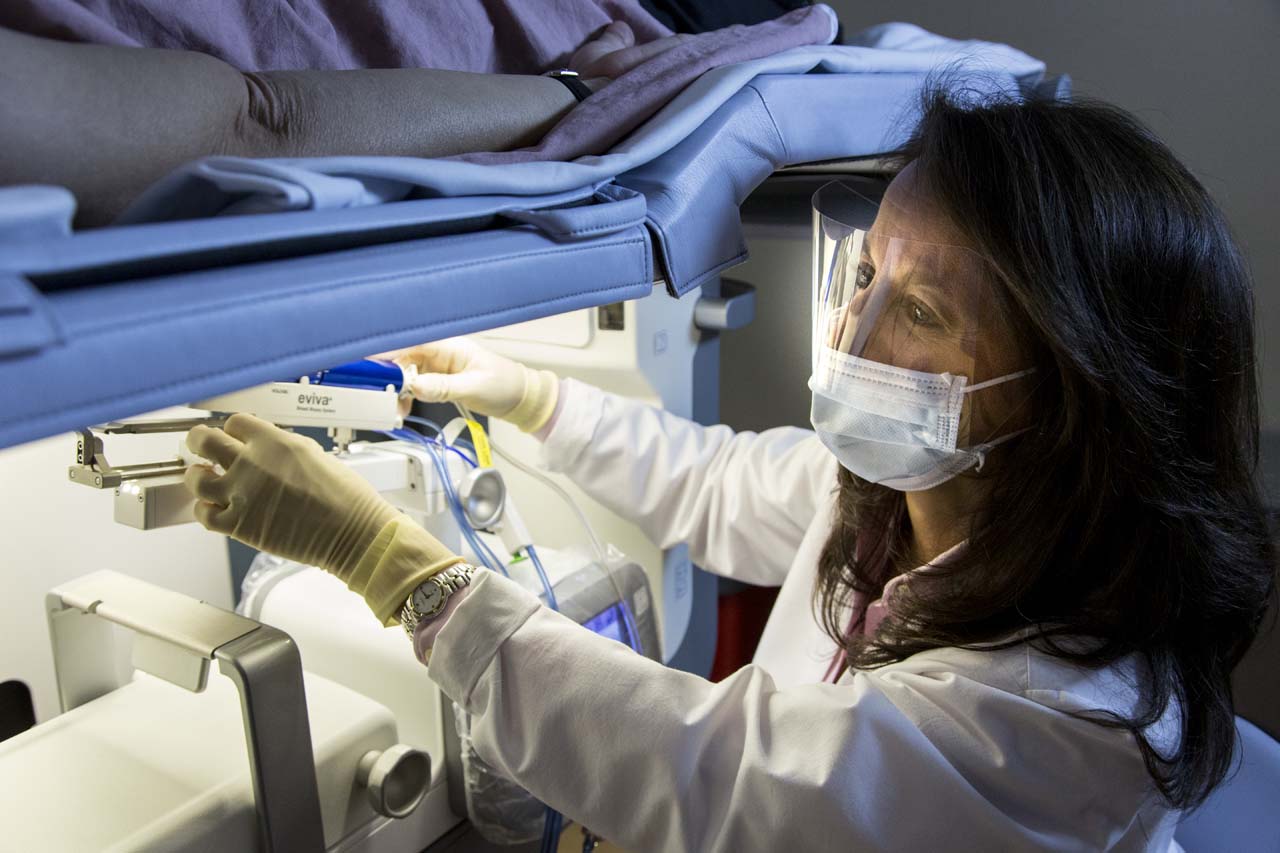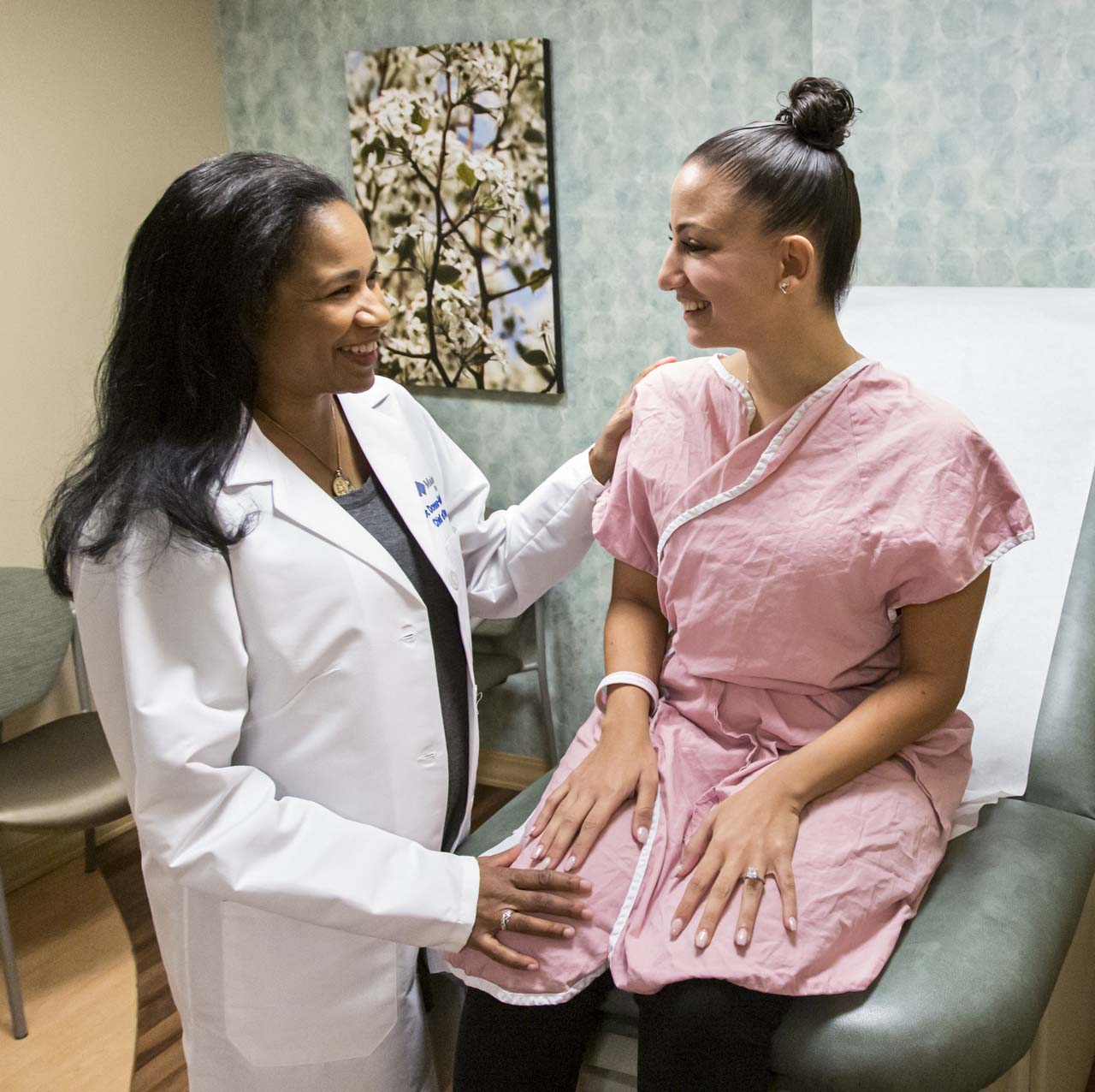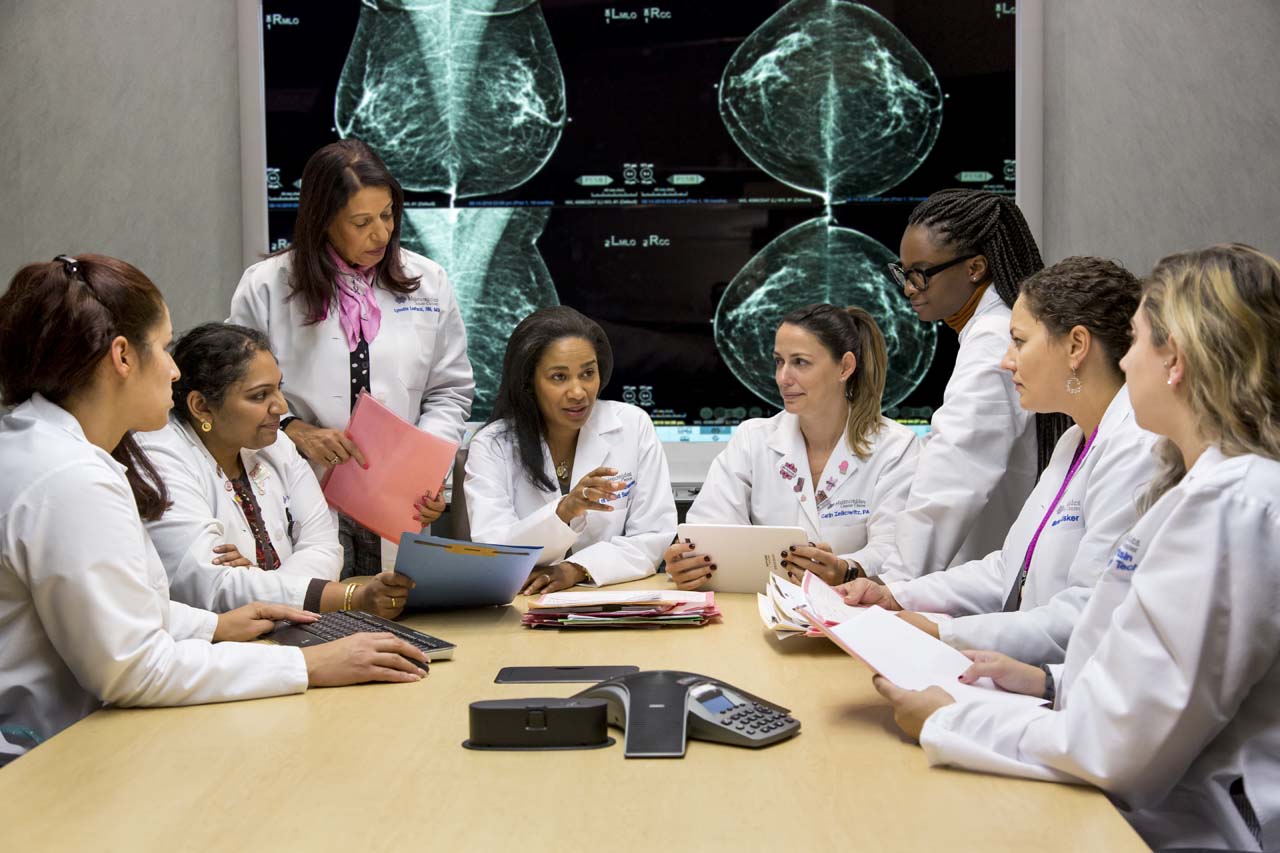HOW MAIMONIDES BREAST CENTER OFFERS BROOKLYN RESIDENTS MULTI DISCIPLINARY COLLABORATION AND STATE OF THE ART DIAGNOSIS AND TREATMENT
BY JESSICA JONES GORMAN PHOTOS © AMESSÉ PHOTOGRAPHY
When Maimonides Medical Center began building its comprehensive Cancer Center more than a decade ago, the goal was to bring comprehensive care to an underserved area of the city. With a population of more than 2.5 million and no dedicated cancer treatment facility in place, hospital administration worked diligently to develop such a program, bringing wide ranging healing to the residents of Brooklyn. And in 2008, Maimonides built upon the Cancer Center’s accomplishments, expanding it to include a nationally accredited comprehensive Breast Program. In 2012, thanks to a generous donation from the Gilbert Rivera Foundation by his wife Erminia Rivera, a Maimonides Trustee, the program expanded to the Maimonides Breast Center.

“The reason why this is so important is because without a comprehensive breast cancer center and team, care was very fragmented,” noted Dr. Donna Marie Manasseh, Maimonides Chief of Breast Surgery. “A woman had her mammogram in one place and if a problem was found, she waited to have additional imaging and then a biopsy, followed by appointments with various specialists in different locations, which led to significant delays. But when you place all of those services under one roof, including surgery, medical oncology, and radiation oncology, and put a nationally recognized expert team together to discuss the issue and the right course of treatment, the entire process is facilitated at a much faster rate, ensuring the best prognosis.”
The only full service Breast Center in Brooklyn, the Maimonides program has grown to encompass several state of the art diagnostic and treatment tools: tomo synthesis, an imaging or new digital mammogram that can be used to screen for early signs of breast cancer in women with no symptoms; stereotactic tomographic table biopsy, which allows for precise location and tissue sampling of the area of concern; and a 3 Tesla MRI, which is currently considered the world’s most advanced MRI machine.
“With recent research and technologic innovations over the past decade, we have a more comprehensive understanding of this complex disease,” said Dr. Manasseh. “Breast cancer is much more complicated than previously thought; it is not just one disease, but many. So, what once required one type of treatment for what was thought to be one type of disease, breast cancer, now has several options in surgical, medical, and radiation therapy that are specifically targeted to differing and specific types of breast cancer. As a result, breast cancer patients are living longer with a better quality of life at all stages than in the previous decades.”

Dr. Manasseh, who was born in Jamaica and raised here in Brooklyn and Queens, graduated from Cornell University and Harvard Medical School before completing her general surgery training at New York Presbyterian Hospital. She did a fellowship at Memorial Sloan Kettering, during which she became interested in the importance of the patient physician interaction. “I saw that when a patient faces mortality, the physician plays a unique role,” she said. “They are not only a part of the journey, but have a hand in changing the course of it. I found that very inspiring and empowering.”
Dr. Manasseh was also strongly influenced by a cancer diagnosis in her own family: her future mother in law was diagnosed with breast cancer during the second year of Manasseh’s surgical training, succumbing to the illness within 18 months.
“She was an academic, an English teacher, the best mother in law anyone could have. During her breast cancer journey, we often discussed my future career,” she said. “Two weeks before she died, we were discussing my career options. I told her I wanted to become a breast surgeon, and she said that’s exactly what I should do.” Dr. Manasseh has been fighting for these women ever since.
After completing her fellowship, Dr. Manasseh took a job at Georgetown University Hospital in Washington, D.C. for a few years with Dr. Shawna Willey. She then moved on to Stamford Hospital in Connecticut, where she helped build an accredited breast surgery program. She was recruited to Maimonides in 2012 by her mentor during her fellowship training, Dr. Patrick Borgen, Chair of Surgery and Director of the Breast Cancer Program.

“I had trained with Dr. Borgen at Sloan,” she said. “I welcomed the opportunity to come to Brooklyn because I loved the diversity of the population here. So much of breast cancer research is done on a more homogenous population, but when you stop to think about how cultures and beliefs intersect, affecting the way people heal or respond to cancer, it’s apparent that broader research needs to be done. While addressing their cultural influences from diagnosis to treatment and beyond, our patients have access to top notch technologies and protocols. In particular on the surgery side, most recently we have implemented an opioid sparing protocol for pain control after breast surgery that spares patients the risks associated with opioid use. This is critical, as it minimizes the concern for potential addiction and more importantly the impact opioids have on potentially stimulating cancer growth.” Joining Dr. Manasseh in her efforts at Maimonides is Dr. Christina Giuliano, Director of Breast Imaging.
“The collaboration here at Maimonides is truly what makes this Breast Center a success,” Dr. Giuliano noted. “We all meet once a week for a couple of hours, and each and every patient case is presented and discussed at length. As the radiologist, I present images, evaluating all potentially suspicious areas that may need additional biopsy and help surgical planning, and then we review the pathology and all treatment options to determine whether surgery is needed immediately or if chemotherapy should be used to shrink tumors first,” adding that genetic counselors are also on hand to weigh in on each case. “There is no black and white to treating breast cancer. There is an enormous number of branches to this disease, and every patient at Maimonides gets a multitude of expert opinions that weigh in on how to treat it. We decide together which path is right. There is a whole arsenal in place when it comes to finding and treating cancer.”
Dr. Giuliano, who practiced at St. Luke’s Roosevelt Hospital for 10 years before coming to Maimonides in 2007, decided to make the move to Brooklyn because she wanted to help bring breast cancer care to a population of women who desperately needed it.
“At the time there were over 10 facilities in Manhattan dedicated to breast cancer treatment, but with well over one million women in Brooklyn, there was no comprehensive breast center of their own,” she said. “Dr. Borgen was gathering together this fabulously smart and talented team, and I wanted to be a part of it.”
Dr. Giuliano credits the Maimonides administration with working hard to provide all of the necessary support and equipment.
“They were dedicated to raising the bar in Brooklyn, and hired the best staff and purchased all of the latest technology to accomplish that,” she said. “Breast imaging technology has come so far in the past decade, making it easier for us to find cancer earlier, detecting a tumor while it’s still small and treatable. We have the ability to find cancer two to three years before a patient feels it. Maimonides made sure that we have the innovation to be able to do that.”

Detailing percutaneous biopsies and wireless localizations, Dr. Giuliano also spoke of state of the art technologies that Maimonides offers patients.
“We are now doing wireless localizations of tumors, trying out two different styles of injectable chips that use radiofrequency or magnetic technology,” she noted. “They are placed quickly and easily with a needle by the radiologist, and a surgeon then uses a specialized device to find them in the OR. It’s a very cutting edge innovation, making cancer treatment much easier. We are far from curing breast cancer, and unfortunately still lose approximately 40,000 women nationally each year, but we are definitely keeping patients alive longer and in good health by finding it earlier.” Dr. Manasseh echoed those sentiments.
“There is a lot of hope on the horizon,” she concluded. “Advancements are coming down the pike in a rapid fashion, adding years and sometimes decades to our patients’ lives. It’s a very exciting time for this field and a very optimistic time for breast cancer patients.”
Maimonides Breast Center
745 64th Street, First Floor, Brooklyn, NY 11220
888.MMC.DOCS / breastcenterny.org
